How did our air get even worse?

Despite the mounting evidence declaring Dhaka's air to be deadly, a new study by the Centre for Policy Dialogue (CPD) shows that all the statistics and warnings on air pollution over the years have fallen on deaf ears. We are concerned to find that since 2020, air pollution has actually increased by 13 percent. From 2018 to 2021, Dhaka remained the second most polluted city in the world, and even now, it continues to be among the cities with the worst air. These pollution figures translate into all kinds of disasters for people. The latest study has found that seven out of 10 Dhaka residents suffer from respiratory issues, like breathing problems and chest pain. All these health complications add up, with Bangladeshis losing almost seven years of life expectancy due to air pollution. According to a World Bank report, toxic air is killing around 80,000 people every year in the country.
Research shows that 30 percent of Dhaka's pollution originates from construction, 29 percent from brick kilns and factories, and 15 percent from vehicles. We are witnessing unprecedented levels of development work and industrial expansion in the hopes of bolstering the economy. But air pollution, brought on by this rampant growth, is squashing those very hopes. Last year, Dhaka residents took 2,117 days off work due to sickness attributable to air pollution, which of course does not bode well for the economy. In fact, the World Bank says air pollution is wiping out around four percent of the country's GDP.
As air pollution has been wreaking all kinds of havoc for so long, surely the government has incentives to address this critical issue, but the numbers belie this notion. In February, the High Court censured the government for not complying with a nine-point directive it issued in 2020 to curb air pollution in Dhaka. Some of the initiatives, like the 2012 Air Pollution Reduction Strategy, largely still remains on paper, and the Clean Air Act is yet to be enacted. At the end of last year, four South Asian countries – Bangladesh, India, Nepal and Pakistan – agreed to drastically curb air pollution, including transboundary pollution, by 2030. But clearly that is not bearing fruit as well.
The government has to get its priorities straight; it cannot keep on ignoring this health crisis and solely concentrate on infrastructure development for the sake of the economy. As air pollution is an all-encompassing issue, we urge all relevant ministries, divisions and departments of the government to address this menace collectively. The existent strategies, policies and acts must be implemented and enforced; only then would people breathe in fresh air again.
Follow The Daily Star Opinion on Facebook for the latest opinions, commentaries and analyses by experts and professionals. To contribute your article or letter to The Daily Star Opinion, see our guidelines for submission.

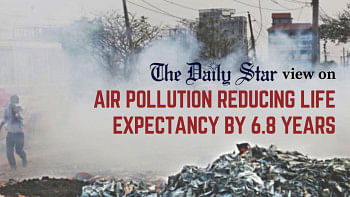
 For all latest news, follow The Daily Star's Google News channel.
For all latest news, follow The Daily Star's Google News channel. 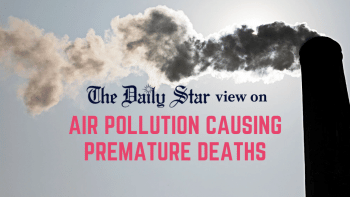
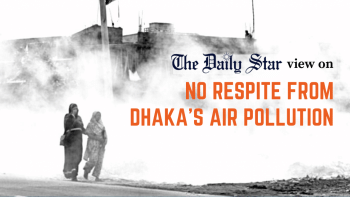


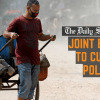
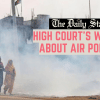

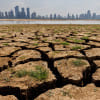
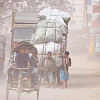


Comments